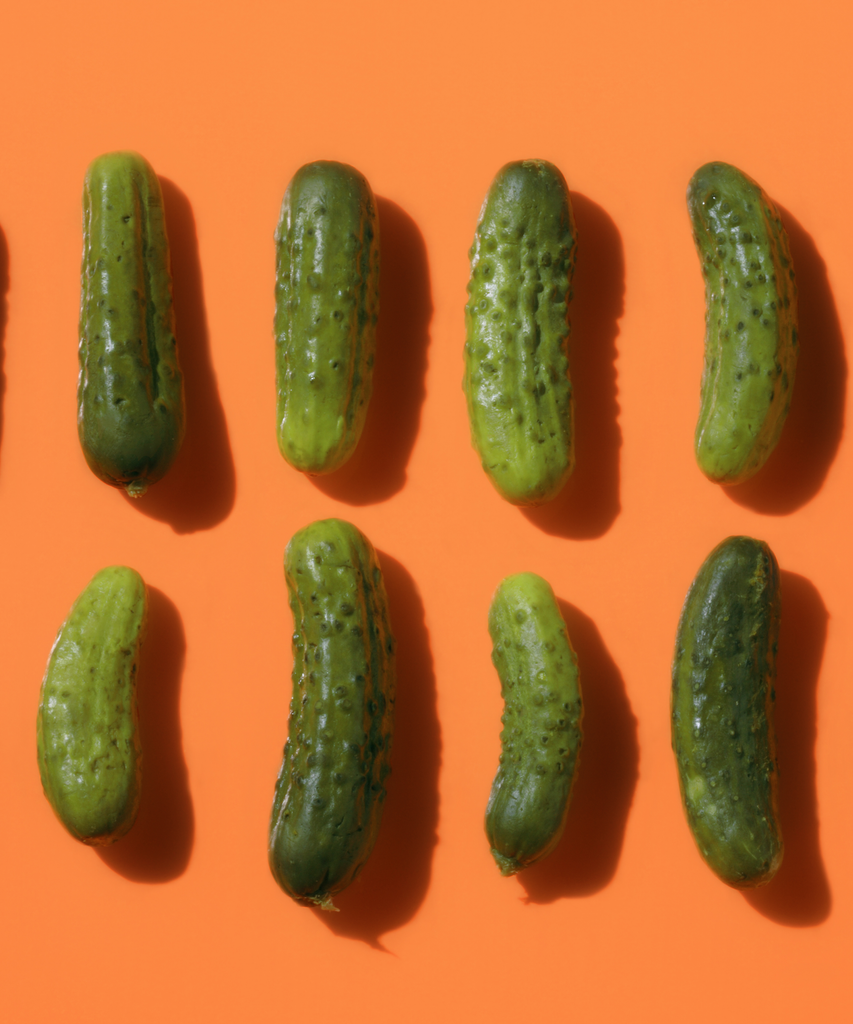
Back in college, my drink of choice at the local bars of Ithaca, New York was a pickleback shot. Not just because I’m a fan of Irish whiskey, but because it included an accompanying shot of my favourite salty sidekick: pickle juice. It’s a perfect chaser — the salty sourness of the juice completely eliminates the burning taste of whiskey after you take your shot. And I had also heard that the greenish brine was a secret cure for hangovers.
Since I was always on a quest to finally outsmart my inevitable next-day headache, I didn’t just use pickle juice as the second act for my whiskey. My college roommates and I would stumble into our apartment after a long night out and crowd around the fridge to eat pickles and take sips of the freshly opened jars of kosher dills (this was pre-COVID times, of course). Although it was fun and I have fond memories of our postgame pickle parties, I still never knew for sure whether or not all that brine drinking actually made a dent in my hangovers.
The expert answer is: Probably not. Pickle juice contains both sodium and potassium, two important electrolytes that may be depleted after we enjoy one too many glasses of pinot grigio or shots of whiskey, according to Abisola Olulade, MD, a family medicine physician based in San Diego. But that doesn’t mean drinking pickle juice in the hopes of replenishing those electrolytes actually gets the job done. “Essentially, there is no significant evidence that increasing electrolyte intake will lead to a faster recovery from your hangover,” Dr. Olulade explains. She points out that reaching for electrolyte-rich liquids, such as Gatorade, after a night of drinking might “work” for hangovers, but not because of those electrolytes — it’s because they’re actually hydrating you.
Since pickle juice is salty, it could encourage you to drink more water, which is a good thing (and could partially explain why I was always chugging H2O after a night of multiple pickleback shots). But the sodium can also “lead to increased sodium levels, which can raise blood pressure,” points out Dr. Olulade. Sodium also increases fluid retention, which can cause things such as bloating and swelling, and may make any digestive issues, such as gas, stomach pain, and diarrhoea, even worse.
The research into pickle juice’s effects on hangovers is woefully… nonexistent, but one small study followed nine runners to see if pickle juice could help prevent cramps or affect performance while exercising. There were no significant differences between those who drank pickle juice and those who drank plain ol’ water.
Dr. Olulade says that in terms of hangover cures, the best thing you can do is to stay hydrated and stay well-rested. “If I were to write a prescription for a hangover cure, I would say time with an added dose of patience,” she says. You can still eat pickles and drink the juice if you like the taste, but don’t rely on the salty stuff to be the end-all-be-all of your hangover, and don’t overdo it.
As for me, I’ll still be ordering a pickleback shot at the bar every once in a while for nostalgia’s sake — but I’ll be pairing it with a tall glass of water and an extra-early bedtime, the only two things that I’ve found actually help me wake up feeling semi-human after a night out.
Like what you see? How about some more R29 goodness, right here?
The Best Foods To Eat When You’re Hungover